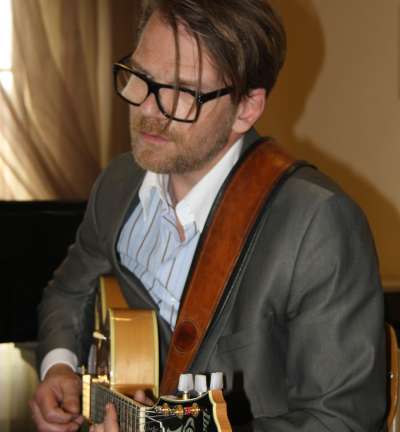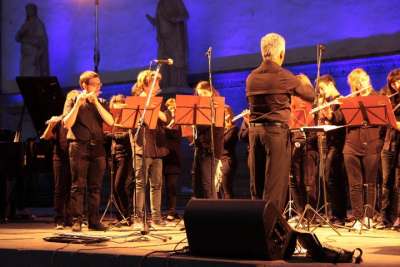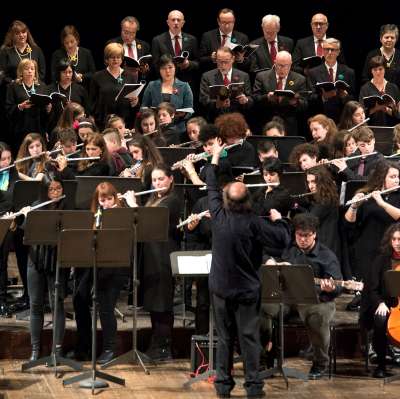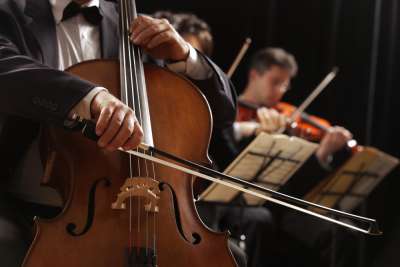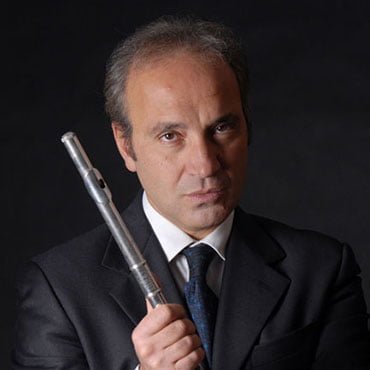 After completing his diploma at the Conservatoire in Florence, he went on to continue his studies in Switzerland under the guide of C.Klemm, A.Nicolet and A.Jaunet.
After completing his diploma at the Conservatoire in Florence, he went on to continue his studies in Switzerland under the guide of C.Klemm, A.Nicolet and A.Jaunet.
As principal flute he has collaborated with numerous Orchestras including the “ORT – Orchestra della Toscana”, the “Carlo Felice” Opera Orchestra of Genova, the MDR Radio – Symphony Orchestra of Liepzig, the Opera Orchestra of Zurich, the Orchestra of “Teatro alla Scala” in Milan, the “Filarmonica A.Toscanini” in Parma and The “Accademia di Santa Cecilia” in Rome.
His commitments as a soloist and chamber musician have led him to perform in some of the most prestigious venues and Festivals worldwide, such as Carnegie Hall (New York), St.John’s Smith Square (London), Wiener Konzerthaus (Wien), Maggio Musicale Fiorentino, Ravenna Festival and the Contempory Music Festivals of Strasbourg and Salzburg.
As a member of the “Italian Wind Quintet” he has been on tour to Israel, France, Great Britain and the United States.
Perhaps most importantly is his contribution to the contemporary music scene, where he has given many first performances of works by Berio, Sciarrino, Gentile, Hoffman, Stuppner, Tutino, Cavallari, De Pablo, Donatoni, Luporini and Einaudi.
Presently Marasco teaches at the Istituto Musicale of Modena and the “Associazione Muse Eventi Musicali” in Florence and Rome.
He has recorded for the RAI (Italian radio-tv network), BBC, French National Radio and he has made various CD for Ricordi, Frame, Antes, Arts, Capstone, Nuova Era and Diapason.
In 1999, invited by Luciano Berio and Maurizio Pollini, he performed as soloists in the Salzburg Festival, in 2001 at the Carnegie Hall (New York), in 2002 at the Kioi Hall in Tokyo, in 2003 in Roma at the “Parco della Musica”, in 2006 in Wien at the Wiener Konzerthaus and in Milano at the Teatro alla Scala, in 2009 at the Teatro Comunale di Bologna and in Paris at the Salle Pleyel.
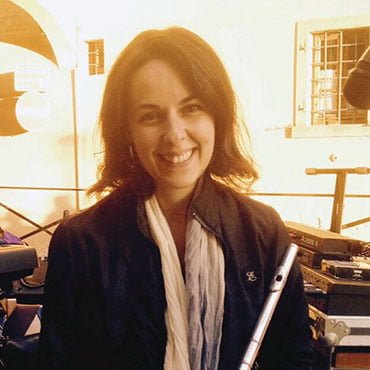 She graduated with the highest vote in the Cherubini Conservatory in Florence with Renzo Pelli. She achived the Diploma of Advanced Flute and Diploma Master (honorable mention) Chamber Music in duo with piano at the Academy of Imola with the masters Cambursano, Valentini, Masi and Altenberg Trio. She studied with Pretto, Tonelli and Mazzanti. Shi has been part of the Italian Youth Orchestra conducted by Muti, Abbado, Iron, Inbal, Tate and Orchestra of Prato, Grosseto, Lucca, etc.. She play with “Orchestra del Carmine” in Florence.
She graduated with the highest vote in the Cherubini Conservatory in Florence with Renzo Pelli. She achived the Diploma of Advanced Flute and Diploma Master (honorable mention) Chamber Music in duo with piano at the Academy of Imola with the masters Cambursano, Valentini, Masi and Altenberg Trio. She studied with Pretto, Tonelli and Mazzanti. Shi has been part of the Italian Youth Orchestra conducted by Muti, Abbado, Iron, Inbal, Tate and Orchestra of Prato, Grosseto, Lucca, etc.. She play with “Orchestra del Carmine” in Florence.



